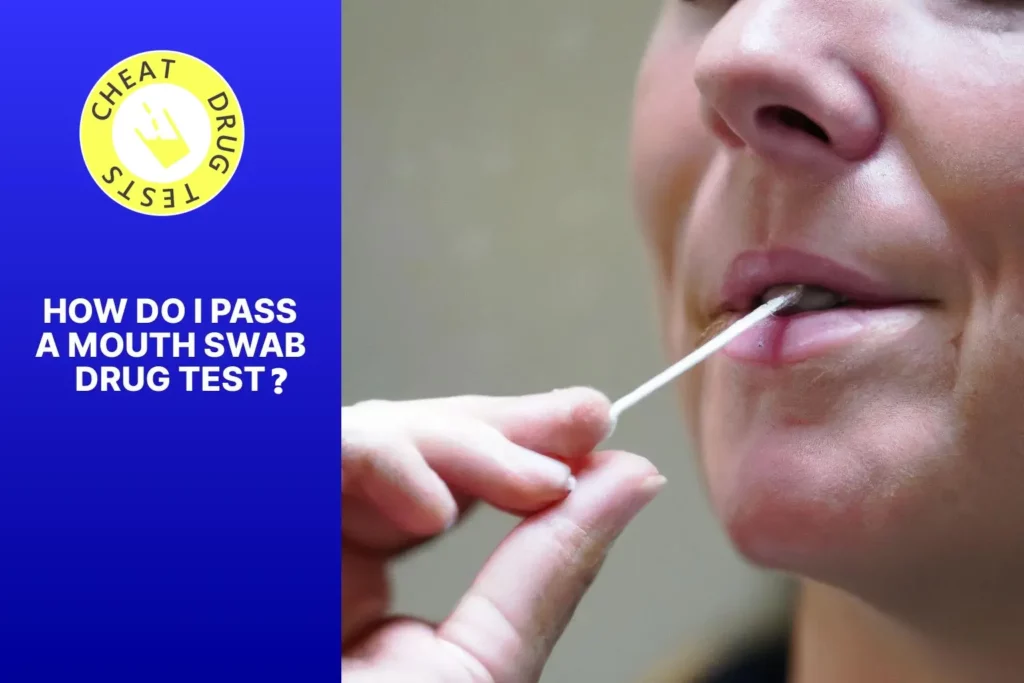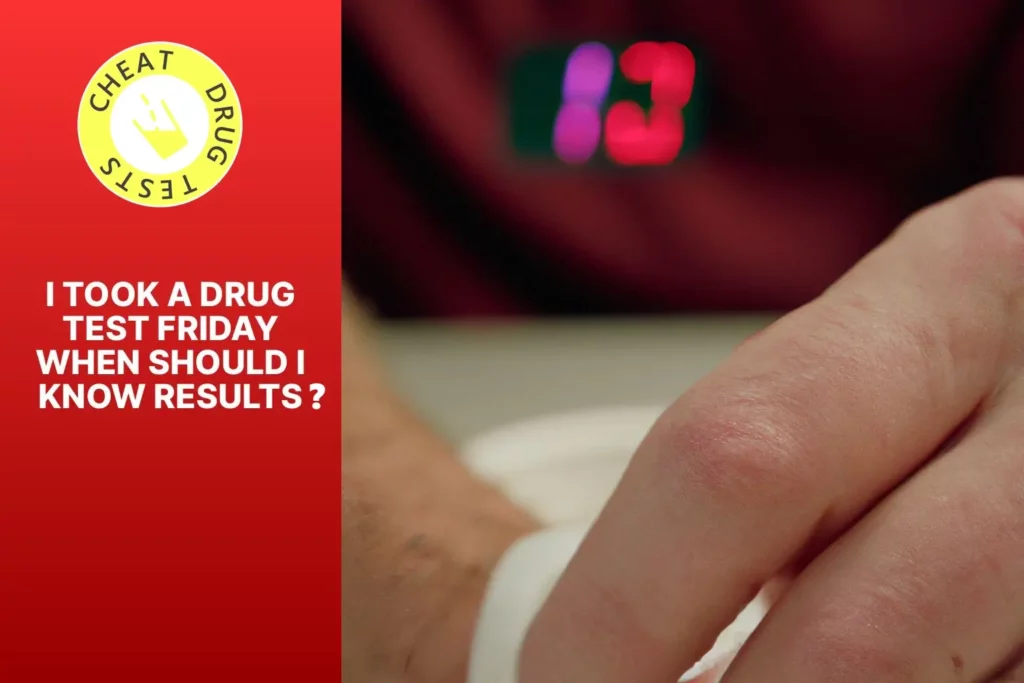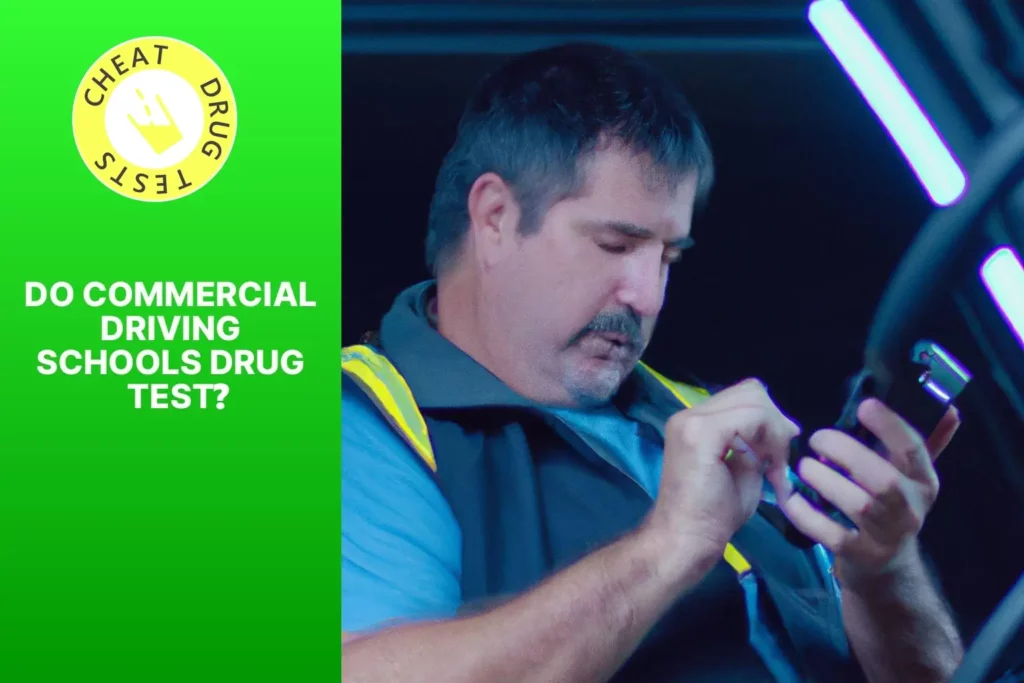Truck driving is a fast-paced world. We must address the issue of truck driver drug tests, why they’re important and resources for passing drug tests. Ensuring everyone’s safety is a must. So, do truck drivers get drug tested?
Yes! Drug tests are a big part of truck driving. To get a Commercial Driver’s License (CDL), you must take a urine test for substances like marijuana, opioids, amphetamines, and cocaine. This helps make sure drivers aren’t using drugs while on the road.
Drug tests don’t stop after the pre-employment screening. Throughout their careers, truck drivers may have random drug tests. These tests keep the industry safe, by preventing substance abuse and making sure everyone follows the rules. Also, if there is any suspicion of drug use, drivers may have to take a drug test.
Drug testing has many benefits.
- It lowers the chance of accidents caused by impaired driving. Trucks are huge and heavy, so if a driver isn’t alert, it can be very dangerous.
- It keeps everyone safe by keeping drug users off the roads.
To help even more, here are some suggestions.
- Trainees should learn about the bad effects of substance abuse. This way, they’ll know the consequences of using drugs while driving, and they’ll be inspired to stay clean.
Also, we should have a zero-tolerance policy for drug use. Enforce strict penalties, like license suspension and job termination. With strong consequences, drivers will prioritize safety.
Pre-Employment Drug Screening for Truck Drivers
Pre-employment drug screenings for truck drivers are necessary for safety. Here are the facts:
Obtaining a Commercial Driver’s License (CDL) is a must for anyone wanting to drive a truck. For this screening, a urine test is commonly used to detect substances such as marijuana, cocaine, opiates, amphetamines, and more.
Federal regulations are in place to ensure uniformity and consistency with safety standards. Plus, random drug testing is conducted on truck drivers to minimize accidents and protect public safety.
Failing a pre-employment or random drug test can lead to severe consequences like the loss of a CDL and disqualification from future opportunities.
It’s good to know that truck drivers go through rigorous screenings before hitting the road. And according to the FMCSA, 4% of them failed their drug tests in 2021.
Drug Testing Procedures for Truck Drivers
Drug testing for truck drivers includes various measures for them to stay sober on the road. This is critical for keeping safety standards and avoiding accidents from drug-impaired driving.
Let’s see the different types of drug tests truck drivers undergo:
| Drug Testing Method | Description |
|---|---|
| Urine Test | Most common method. Analyzing a urine sample to find traces of drugs like marijuana, cocaine, amphetamines or opioids. Can detect recent drug use for days or weeks. |
| Hair Follicle Test | Longer detection window than urine tests (up to 90 days). Examines hair samples for evidence of drug metabolites. More expensive but offers a better view of driver’s drug history. |
| Oral Fluid Test | Also known as saliva testing. Collecting a sample of saliva from the mouth. Can detect recent drug use and impairment at the time of testing. Non-invasive and accurate. |
The guidelines may differ depending on what companies or governing bodies decide.
Random drug tests may happen during a truck driver’s career to check if they’re sober.
It’s important to stick to these drug testing procedures. Not just for drivers but also for public safety on our roads.
Be safe and be informed – truck drivers should understand and comply with these regulations.
Consequences of Failing a Drug Test for Truck Drivers
Failing a drug test as a truck driver can be disastrous. It can lead to the revocation of your CDL and the loss of your job. This is because truck drivers must adhere to strict safety standards on the roads, and any use of drugs is seen as a risk.
Furthermore, it can damage your reputation in the industry. Future employers may be hesitant to hire someone with a failed drug test on their record, making it difficult to find employment in the trucking field.
It’s important to remember that pre-employment drug tests are common in the trucking industry. Therefore, before you become a truck driver, you must pass a urine test to detect any illegal substances in your system. Failing means you won’t be hired.
To prevent these consequences, it is essential for truck drivers to prioritize their health and well-being. This includes avoiding drugs or substances that could impair their driving. Additionally, seeking help through counseling or rehab programs can assist truck drivers in overcoming addiction.
By staying clean and taking steps towards recovery if needed, truck drivers can keep their CDL and stay working in this demanding industry. Safety should always be the number one priority for themselves and other drivers.
The Impact of Drug Testing on Truck Driver Safety
Drug testing is crucial for safeguarding truck drivers on the roads. It not only safeguards the transport industry’s credibility but also safeguards drivers and other highway users from harm.
- 1. Upholding Standards: Drug tests maintain industry standards by obstructing drivers under the influence of drugs from controlling commercial automobiles.
- 2. Deterring Drug Use: Fear of being caught through regular drug tests deters truck drivers from using drugs.
- 3. Promoting Accountability: Drug tests encourage accountability among truck drivers, generating a safer work environment where everyone is liable for their actions.
- 4. Identifying Impaired Drivers: Pre-employment and random drug tests can discover drivers with substance abuse problems and stop them from putting others at risk.
- 5. Increasing Awareness: Constant drug testing increases awareness of the danger of impaired driving and encourages truck drivers to make safer decisions on the roads.
Moreover, drug testing increases public trust in the professionalism and reliability of trucking companies, resulting in a generally safer transport system.
Regular drug testing is essential for trucking companies to guarantee that any person not fit for duty due to substance abuse is identified quickly, making our highways safer. Don’t miss out on this chance to improve driver safety – start regular drug testing now.
Personal Perspective: The Role of a Urologist in Truck Driver Drug Testing
A urologist’s role in truck driver drug testing is vital for safeguarding drivers and the public. As a urologist, I am essential in carrying out urine tests and interpreting results to detect drug use.
Urine testing is one of the most popular methods for screening truck drivers for drugs. It requires collecting a sample of urine from the driver and assessing it for drugs or metabolites. For example, marijuana, cocaine, opioids, and amphetamines.
I specialize in understanding the urinary system and its functions. This skill enables me to correctly interpret urine test results and detect any abnormalities. Through working together with trucking companies and regulators, I can assure only drug-free individuals are on the roads.
It is crucial to remember that pre-employment drug screening is not the only event when truck drivers can be tested for drugs. Random drug tests are also done to stop drivers from misusing substances while on duty. These tests are an effective way to keep the roads safe.
To emphasize the importance of this issue, a real-life incident happened in 2018. A highways accident occurred with multiple vehicles due to a semi-truck driver being under the influence of drugs. The crash caused fatalities and injuries, emphasizing the serious requirement for rigorous drug testing protocols in the trucking industry.
Conclusion
Truck drivers have to pass regular drug tests. These tests measure if alcohol or illegal drugs are present in the urine. To stay safe on the road, truckers must follow a strict substance abuse policy.
CDL holders must legally undergo drug testing too. If they don’t pass, their CDL will be suspended or even taken away. This makes sure only responsible people drive big commercial vehicles.
Drug testing for truckers is strictly regulated. Samples are sent to certified labs for analysis. Using drugs as a trucker is a risk to all on the roads.
John was a trucker who drove under the influence of drugs and caused an accident which led to injuries and death. This made drug testing for truckers even stricter and more frequent.

Frequently Asked Questions
Frequently Asked Questions about Truck Driver Drug Testing:
1. Do truck drivers get drug tested?
Yes, truck drivers are required to undergo drug testing as a part of their job. It is mandated by the Federal Motor Carrier Safety Administration (FMCSA) that all commercial drivers holding a commercial driver’s license (CDL) must participate in drug testing.
2. What types of drugs are tested for in a truck driver drug test?
The standard truck driver drug test screens for several types of drugs, including marijuana, cocaine, amphetamines, opiates, and phencyclidine (PCP). These tests are usually conducted through a urine sample.
3. When are truck drivers drug tested?
Truck drivers are required to undergo drug testing at various times, including pre-employment, randomly throughout employment, after an accident, and in certain circumstances, such as reasonable suspicion. Pre-employment drug testing is a common requirement for obtaining a CDL.
4. How is a truck driver’s drug test conducted?
Most truck driver drug tests are conducted using a urine sample. The driver will provide a sample in a secure environment, which is then sent to a laboratory for analysis. The sample is tested for the presence of drugs as well as checks for attempts to tamper with or cheat the test.
5. What happens if a truck driver fails a drug test?
If a truck driver fails a drug test, they will face serious consequences, including potential loss of their CDL and their job. The specific consequences may vary depending on the trucking company’s policies, but failing a drug test is generally considered a violation of federal regulations and can result in suspension or termination.
6. Is it possible for a truck driver to cheat a drug test?
Drug testing for truck drivers is designed to prevent cheating or tampering with the results. Laboratories follow strict protocols to ensure the integrity of the tests. Additionally, the DOT and FMCSA have established regulations and procedures to deter cheating, such as observed urine collection and implementing penalties for tampering attempts.
Cheat Drug Test articles & impartial reviews are funded by affiliate commissions, at no extra cost to you, our awesome readers. Learn more



